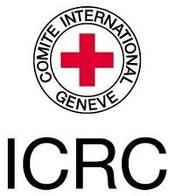POWs often worked outside the camps ... and got paid.
The official name of the Geneva Convention that governed during WW2 is "Convention relative to the Treatment of Prisoners of War. Geneva, 27 July 1929". Here are some excerpts from SECTION III - WORK OF PRISONERS OF WAR. (emphasis added, corrections of apparent typos are marked in brackets)
Art. 27. Belligerents may employ as workmen prisoners of war who are physically fit, other than officers and persons of equivalent [status], according to their [rank] and their ability.
Nevertheless, if officers or persons of equivalent status ask for suitable work, this shall be found for them as far as possible.
Non-commissioned officers who are prisoners of war may be compelled to undertake only supervisory work, unless they expressly request remunerative occupation.
...
Art. 28. The detaining Power shall assume entire responsibility for the maintenance, care, treatment and the payment of the wages of prisoners of war working for private individuals.
Art. 29. No prisoner of war may be employed on work for which he is physically unsuited.
...
Art. 31. Work done by prisoners of war shall have no direct connection with the operations of the war. In particular, it is forbidden to employ prisoners in the manufacture or transport of arms or munitions of any kind, or on the transport of material destined for combatant units.
Even more surprising (at least to me!): officers were paid even without working:
Art. 23. Subject to any special arrangements made between the belligerent Powers, and particularly those contemplated in Article 24, officers and persons of equivalent status who are prisoners of war shall receive from the detaining Power the same pay as officers of corresponding rank in the armed forces of that Power, provided, however, that such pay does not exceed that to which they are entitled in the armed forces of the country in whose service they have been. This pay shall be paid to them in full, once a month if possible, and no deduction therefrom shall be made for expenditure devolving upon the detaining Power, even if such expenditure is incurred on their behalf.


